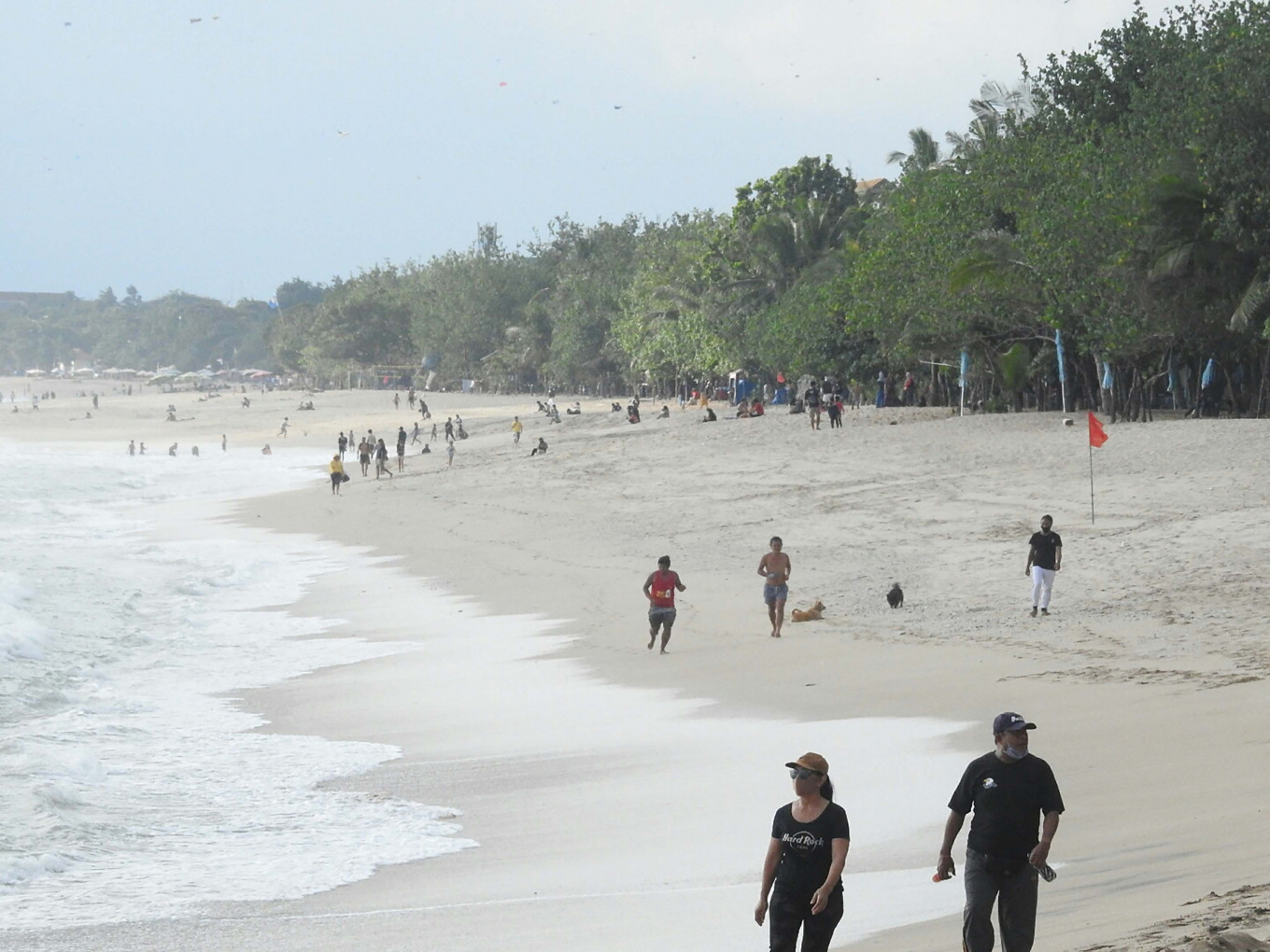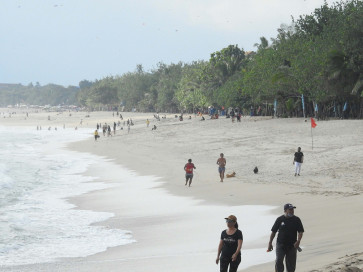Popular Reads
Top Results
Can't find what you're looking for?
View all search resultsPopular Reads
Top Results
Can't find what you're looking for?
View all search resultsAnalysis: RI lifts ban on sea sand exports, raises environmental concerns
Change text size
Gift Premium Articles
to Anyone
T
he Joko “Jokowi” Widodo administration has decided to lift the government’s ban on exports of sea sand, which had stood for 20 years, amid the threat of environmental degradation to the country’s coastal environment. The sea sand export reinstatement came about while the government attempts to prohibit exports of more of the country’s critical minerals.
The end of the sea sand export ban came by way of Government Regulation No. 26/2023 on the management of marine sedimentation, which was effective as of May 15. Article 9(2d) of the regulation stipulates that marine sediment could be exploited for export, provided that domestic needs had been fulfilled and the export was done in accordance with statutory provisions. Article 15(5) stipulates that the level of domestic need is to be decided through a ministerial regulation.
The ban was initiated in 2003 by the administration of Megawati Sukarnoputri, who is ironically the incumbent leader of Indonesian Democratic Party of Struggle (PDI-P) which Jokowi is a member of, due to major damage to Riau Island’s coastal ecosystems to satiate Singapore’s sea sand demand for its land reclamation projects. Indonesia also lost US$330 million annually from 1970 until 2003 because only 900,000 cubic meters (cbm) of exported sea sand was sold legally out of the total 45 million cbm that was mined.
Maritime Affairs and Fisheries Minister Sakti Wahyu Trenggono said the regulation was mainly for fulfilling the domestic demands of sea sand for reclamation projects and that if it was not regulated well then small islands could be exploited for reclamation projects or the bottom of the sea being mined, which would cause further environmental damage.
The minstry’s special staffer Wahyu Muryadi added the ministry would ensure the extraction of marine sediment was done with much safer tools for the environment than under the pre-ban regulatory regime and that the policy would bring in revenue for the country. Meanwhile, Riau Islands’ Sea Sand Miners Association (APPL) chairman Heri Tosa believed the government had concluded its border dispute with Singapore, which was thought to be part of the motivation behind the previous ban.
However, Greenpeace Indonesia refused to be a part of the research team to implement the regulation, saying the government’s justification of the decision was a “greenwashing” attempt. Furthermore, the Indonesian Forum for the Environment (Walhi) warned that the regulation would threaten the livelihoods of fishermen and coastal communities. The NGO also said it would hasten the loss of small islands, which could displace around 23 million people by 2050.
Although the government regulation could reopen a revenue stream for Indonesia amid its infrastructure development, including for the development of its new capital city, it has a steep environmental cost that would lead to future financial losses for the country. The policy gives more benefit to polities looking to import sea sand for land reclamation projects, such as Singapore and Hong Kong, than to Indonesia. Exported sea sand to Singapore contributed to the expansion of the city-state’s land area by 25 percent from 1976 to 2001.



















